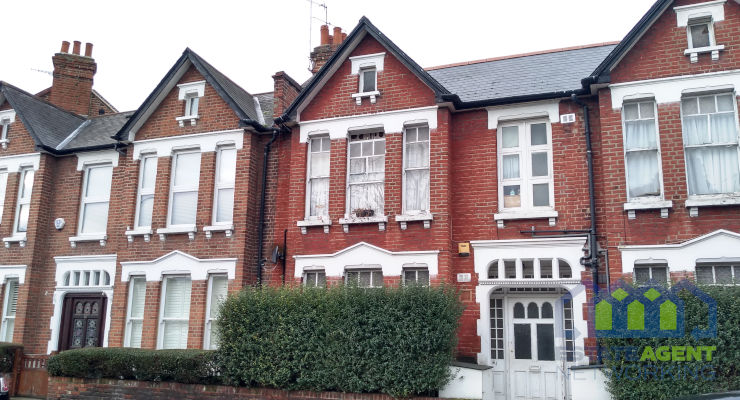Is the Tenancy Deposit Scheme Foolproof, and What Protection Does it Provide?
Deposits and rented accommodation have managed to be the source of concern and dispute for decades, if not longer.
Typically, when someone rents a residential property or a commercial one, they will hand over some form of security deposit. In the case of commercial properties, these may be large sums, including VAT, and involve a complex contract.
Residential deposits are smaller but of equal importance. They are there to protect the landlord from damage to their property, but sometimes they can be misused.
There have been numerous cases where landlords have withheld deposits on false pretences, or they have inflated repair and cleaning costs.
For a while now though, there has been protection in place for tenants and their deposits. But, does this protection work, and what if a landlord circumvents it?
When did the tenancy deposit scheme begin?
Fifteen years ago, the government chose to introduce a scheme designed to stop unscrupulous landlords from fleecing their departing tenants.
Anyone renting a residential property after April 2007 should be protected by the Government’s tenancy deposit scheme.
However, it would appear that this scheme has not stopped poor behaviours from some landlords.
In the first six months of 2018, a number of landlords were convicted for stealing tenant’s deposits. The total sum stolen in just half a year added up to nearly £1 million.
What actually is the tenancy deposit scheme?
When a tenant takes possession of a residential property, they normally have to provide a security deposit.
With the tenancy deposit scheme, the landlord or letting agent can receive this sum. Unlike in the past though, this money has to be placed into a scheme instead of being held.
Whoever receives the tenant’s deposit has 30 days to place the sum in the scheme. Once the tenancy comes to a close, they have 10 days to return the sum to the tenant.
This is only after both parties have agreed to how much of the deposit is refundable. Damages and cleaning costs can be deducted, as can unpaid rent.
Both the landlord and tenant must come to an agreement on deductions, and then the deposit can be returned. When there are disputes, a free resolution service can be used to examine evidence and make a ruling.
Must all landlords have to abide by this scheme?
This tenancy deposit scheme, or TDP, applies to England and Wales. In Scotland and Northern Ireland separate, but similar, schemes apply.
Not all landlords will require a deposit, but if they do, then they must take part in one of the tenancy deposit schemes.
Some kinds of deposits are not covered though. If a tenant hands over cash as a form of holding deposit, this doesn’t need to be protected. Once the tenant decides to take the property though, this money forms part of the security deposit and needs to be treated as such.
What happens if a landlord fails to lodge your deposit with the scheme?
While letting agents and landlords are supposed to abide by the scheme, some are still ignoring it.
Some landlords flout the rules and use tenants’ deposits as if they were their own cash. This has been clear from the convictions mentioned above.
Some new landlords may simply not be completely clued up with the rules they must follow. Some might forget to place the deposit in a scheme, and some may simply be slow at getting tasks done.
Whatever the situation is with your particular landlord, the rules are clear. The deposit needs to be placed in one of the schemes within 30 days of receipt.
Failure to do this can lead to tenancy deposit compensation claims which can result in the landlord paying the tenant compensation.
What are tenancy deposit compensation claims?
Deposits have often caused disputes between tenants and landlords. Often landlords have tried to retain too much of a deposit, and sometimes tenants have been unreasonable.
If the case is that the landlord has refused or failed to protect a deposit. Then the tenant can seek compensation.
This compensation can be up to three times the sum of the deposit. And every time the landlord commits a breach, compensation can be claimed again.
For example, if the deposit was for £500, and the contract was for 12 months, then you could claim up to $1500. If that contract was renewed without the deposit being protected, then that would be a second breach. The compensation, therefore, rises to a potential £3000.
Damage left to a property should rightly be paid for by the tenant if they have caused it. Today, cleaning remains the number one cause of deposit disputes and can lead to deductions.
While most of these disputes can be worked out, sometimes they need outside help.
There are now a number of tenancy deposit claim specialists who work on no-win-no-fee arrangements to help tenants in this situation.
What protection do you have for your deposit?
As the scheme makes clear, your deposit must be placed in one of three approved schemes.
These schemes are known as:
- MyDeposits
- The Deposit Protection Service
- The Tenancy Deposit Scheme
If your landlord fails to protect the deposit in one of these schemes you can go to your local county court. Here you will be able to start proceedings against your landlord.
You will have to pay a fee to the court of £308 which can later be claimed back if you win your claim. You may also receive compensation, although this is not guaranteed.
The court may simply order your landlord to place the deposit in one of the three schemes above.
Often, opening up dialogue with the landlord may be all that is needed. There may just have been an oversight.
How much deposit should you be paying, and when will it be returned?
This is another area that some landlords and tenants are unclear about. But it is clearly an important one.
While most people expect to hand over a security deposit, they may be unaware that there is a limit on how much can be asked for.
The amount that can be requested from you depends on the rental agreement.
If the property you are renting will cost over £50,000 per year in rent, then the landlord can request up to 6 weeks’ deposit.
Anything below this level of annual rent requires a smaller deposit.
Typically, a landlord will request a 4 to 5 weeks security deposit. According to the Citizens Advice Bureau, a landlord will be breaking the law if they ask for anything over 5 weeks.
Summary
The tenancy deposit scheme is certainly something that tenants have welcomed, and have long needed.
Unfortunately, they aren’t foolproof as some landlords continue to ignore them. Luckily they are in the minority.
It is crucial of course to know how to correctly issue tenancy deposit schemes. And also to keep to the time restraints as a landlord.
If you are a tenant though, there is help available if your landlord fails to protect your deposit.
If simple communication doesn’t work, you can head to your local county court. If this feels somewhat intimidating to you, then there are legal services who will help to fight for compensation if appropriate.









